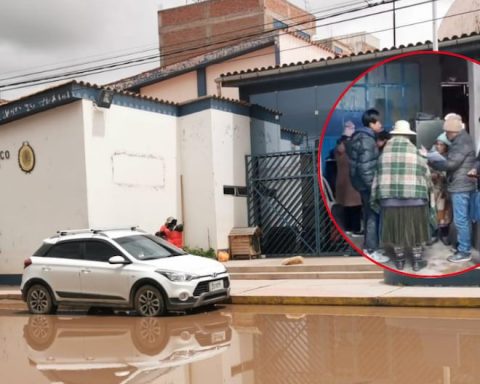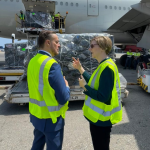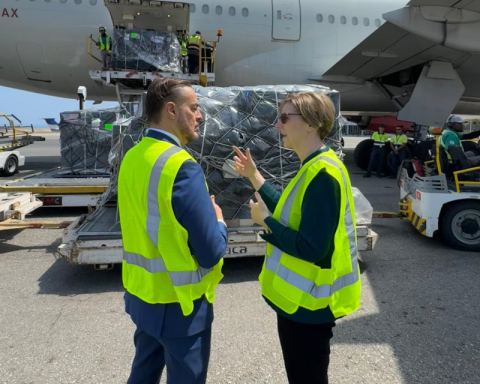De Echave believes that we have weak institutions and regulatory standards, and that companies have a huge margin of self-regulation. He warns that the ecological damage is irreparable and of the existence of a possible benefit in favor of the company for recovery of the environmental emergency, which would be deductible from its taxes.
There is a contingency plan that is required of companies that have risky activities. What could have happened in the case of the oil spill at the La Pampilla refinery?
Some experts are calling it the biggest oil disaster in our history. I believe that this ecological disaster clearly shows the precariousness in which we move and in which this type of activity is carried out, which implies a high risk, but which constantly seeks to be reduced. What we see is that there is a precarious institutional framework on the part of the State, we have weak regulatory institutions and norms, and in practice, companies have an enormous margin of self-regulation and self-control of their activities.
What is the status of the OEFA?
I want to underline this because now we are talking about the role of the OEFA, its functions, what it should have done. We must not forget that the OEFA by Law 30230 was seriously hit, it was in the freezer for almost two years. In addition, for years the companies of the National Society of Mining, Oil and Energy carried out an enormous campaign, they even reached the Judiciary and even the Constitutional Court to bring down the regulatory contribution that the companies have to pay to the regulatory bodies, a contribution that It is intended to support the regulatory bodies. We need a strong institutional framework and equally strong regulations so that those activities that imply a serious risk to ecosystems are regulated, as is the case in the vast majority of countries. But the discourse is always that this scares away investment and that it is a red tape.
It is clear that this spill has a person responsible.
We are in the sixth day of this situation and we have gone from a spill of seven gallons to a spill of 250,000 gallons, which is equivalent to 6,000 barrels of oil spilled. In the field of impact we have also gone from 18 thousand square meters to almost 1 million 700 thousand square meters. In other words, we continue to receive basic information from the company because the State shows all the institutional precariousness and capacity to face a situation of this nature. For me it is clear that the responsibility lies with the company. According to our legislation, responsibility is something objective, this activity is risky and the operator must assume the costs that are contemplated in the law. There is a whole issue of administrative procedures there, not to mention civil and criminal procedures that take time.
You spoke of a possible benefit in favor of companies for recovery costs in the face of the emergency.
I am outraged that the companies that cause this environmental damage have this kind of benefits that allow them to deduct the costs generated by the recovery from the environmental emergency from the tax base. That means that these costs are being transferred to the State and to society as a whole. This seems scandalous to me.
It is regulated…
It would be urgent to modify an article of the income tax law so that it is prohibited that the legal obligations that come from behaviors that affect the ecosystem can be deducted from the tax obligations of the companies. That is unacceptable. The fine is the fine, the same as the administrative sanction, in parallel the companies have to bear the costs of environmental remediation. That cannot end up being a tax benefit.
There is ecological damage, serious effects on the marine flora and fauna.
The damage is irreparable. This will last for months and in other cases more than months. It will take a long time for the ecosystem to regenerate. Measuring impacts and damage is an extremely complicated task. When there was the spill in the Gulf of Mexico, which was from another dimension, there was talk of years for its regeneration. It will depend on the capacity of the Peruvian State to supervise, control and prevent the impact from continuing to occur.
There is also economic damage, there is an economic chain that develops in the summer season on the beaches.
Unfortunately, this summer will be remembered as the summer of the Repsol catastrophe. The impact has reached Chancay, we are talking about an important extension of the coast where there is very important economic activity for merchants of all kinds. The season is totally affected and it is not a matter of days, recovering the space is going to take months.
It has been offered to incorporate the fishermen in the tasks of environmental recovery to compensate the economic damage.
It is worrying that it is announced that one way to help the affected fishermen in their work is to incorporate them into the recovery processes of the area. It is not a serious solution because the first thing we must demand is that the people who are part of this process have to be trained and also have the proper equipment. The fishermen who will be left without work should be compensated by those responsible for this catastrophic situation.














